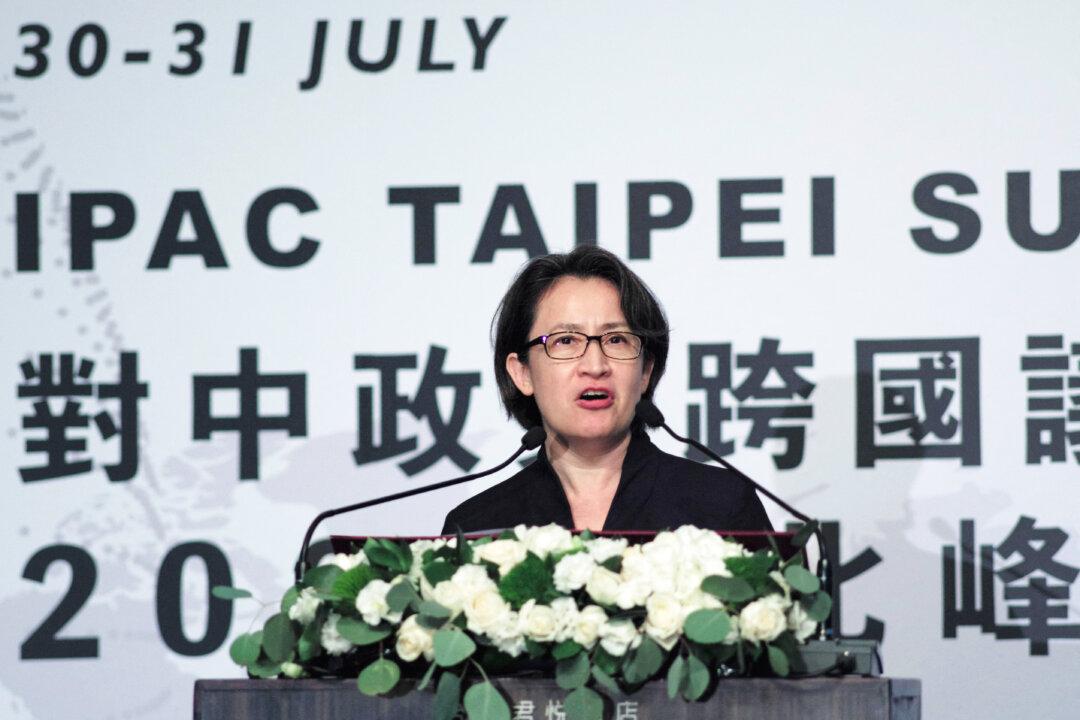Chinese diplomats and agents tailed Taiwan’s then-vice-president-elect Hsiao Bi-khim during her visit to Prague last year and plotted to intimidate Hsiao, Czech military intelligence confirmed on Thursday.
The following month, Prague-based media Seznam Zpravy reported that a Chinese diplomat ran a red light when following Hsiao’s convey through an intersection, nearly causing a crash. At the time, Czech’s Foreign Ministry told the publication that it was looking into the incident, and that the Foreign Minister had decided to summon the Chinese ambassador.
On Thursday, Czech’s Military Intelligence confirmed that Hsiao was targeted by the Chinese regime, after local media reported that Chinese agents may have planned a collision with Hsiao’s vehicle.
Pejsek added that the intelligence service “even recorded an attempt by the Chinese civil secret service to create conditions to perform a demonstrative kinetic action against a protected person, which however did not go beyond the phase of preparation.”
On Thursday, Czech media irozhlas.cz cited a similar statement from Pejsek, in which the spokesperson also said the activities were “conducted, amongst others, by individuals holding diplomatic posts at the Chinese Embassy in Prague.”
The Chinese embassy in Prague did not respond to The Epoch Times’ request for comment.
Speaking on Friday at a press conference in Beijing, China’s Foreign Ministry spokesperson Guo Jiakun called Hsiao a “diehard ‘Taiwan independence’ separatist,” and said the Czech Republic had “seriously violated the one-China principle and its political commitment to China, and grossly interfered in China’s internal affairs,” by allowing Hsiao to visit Prague.
The council said it “protested and strongly condemned the Chinese communist’s bad behavior and demanded that the Chinese side should immediately explain and publicly apologize.”
The Inter-Parliamentary Alliance on China (IPAC), a group consists of more than 200 lawmakers from dozens of legislatures around the world, including four Czech legislators, said its members are “dismayed” by the Chinese regime’s alleged plan to launch a “demonstrative kinetic attack” against Hsiao.
IPAC expressed solidarity with Hsiao and other Taiwanese citizens “who may be subject to coercion” by the Chinese regime, and called on governments to condemn the regime’s “unacceptable actions.”
“A state which is willing to plan such an overt act of politically motivated violence in a foreign country is not a state that can be said to respect international diplomatic norms.”
The Chinese communist regime has never ruled Taiwan but sees the self-governed island as a wayward province. It has never ruled out annexing Taiwan by force, and has constantly sabotaged Taiwan’s diplomatic relations and its membership in international organizations.
Taiwan and the Czech Republic have not established an official diplomatic relationship, but have maintained exchanges in areas including trade and culture, and have grown closer in recent years, despite protests and threats from Beijing.
In 2019, Prague ended its sister city agreement with Beijing, and soon entered a new agreement with Taipei.
Czech President Petr Pavel, after he was elected in January 2023, accepted a call from then Taiwanese President Tsai Ing-wen, making him the first EU leader to directly speak with a president of Taiwan, and drawing the ire of Beijing.







